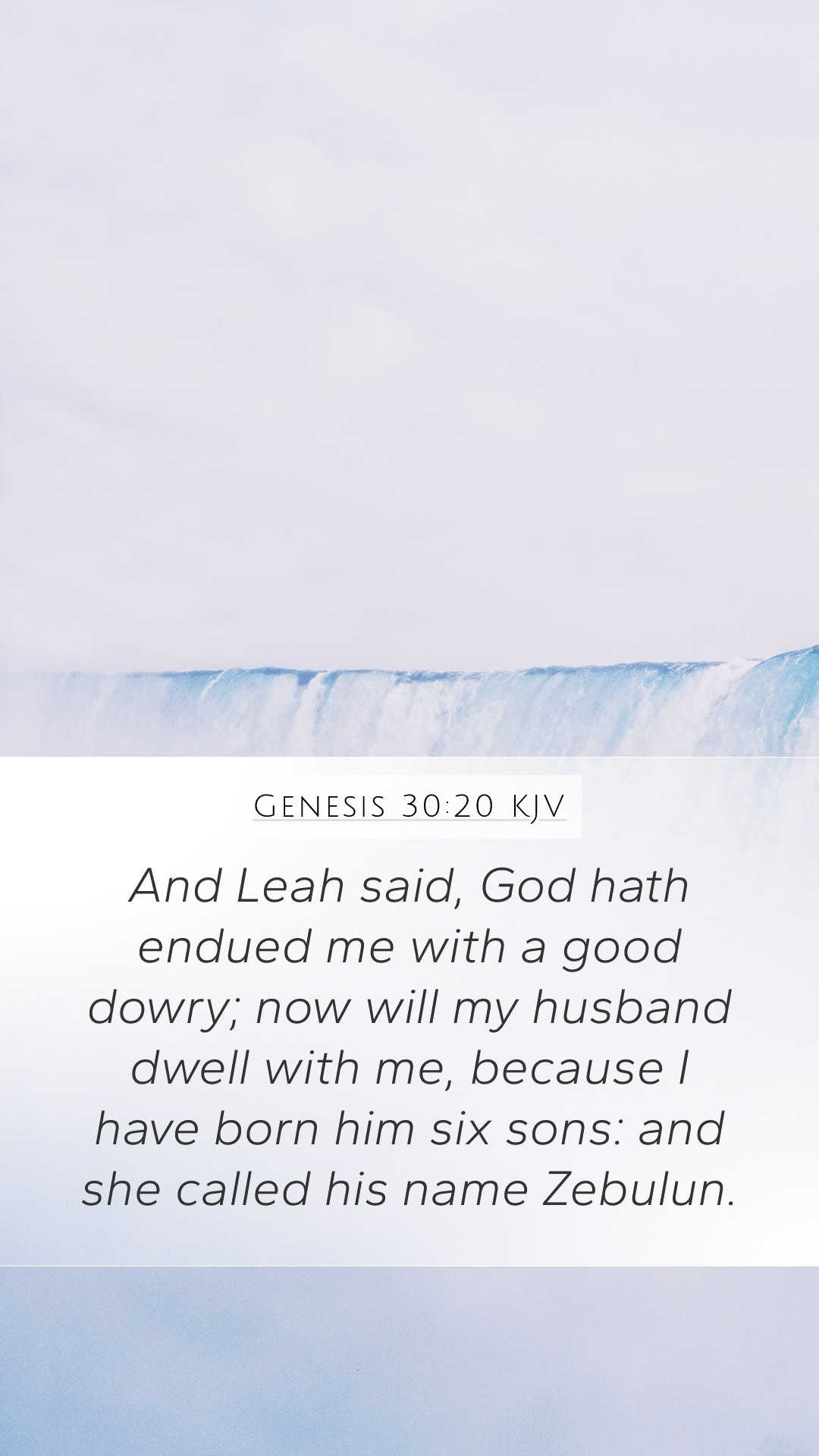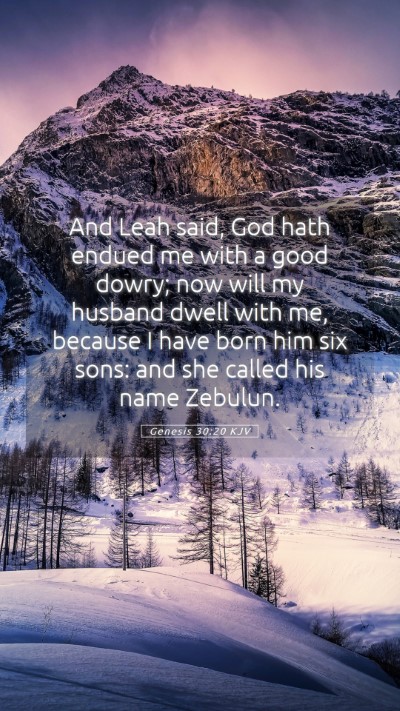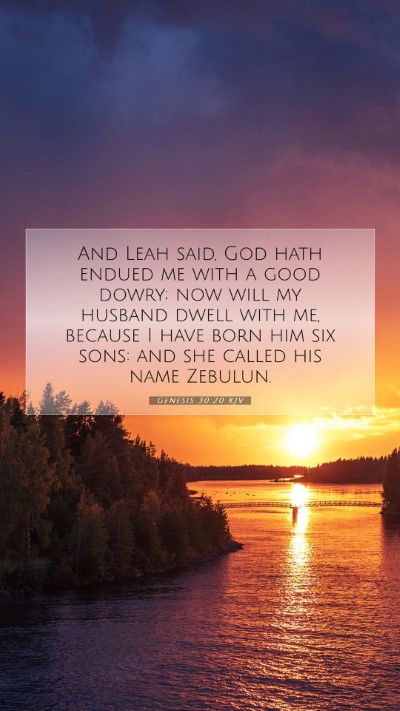Understanding Genesis 30:20
Genesis 30:20 (KJV) reads: "And Leah said, God hath endued me with a good dowry; now will my husband dwell with me, because I have borne him six sons: and she called his name Zebulun."
This verse is part of the narrative concerning Leah and Rachel, the wives of Jacob, and it illustrates the complex relationships and family dynamics within the patriarchal family of Israel.
Bible Verse Commentary
In this passage, Leah expresses gratitude to God for her children, particularly noting that the birth of her sixth son might compel her husband, Jacob, to finally show her love and dwell with her. This reflects Leah's ongoing struggle for Jacob's affection.
Biblical Exegesis
The reference to a "good dowry" implies a sense of value that Leah attributes to her sons, suggesting that her motherhood is her contribution to the family's legacy, particularly in a time when sons were seen as a blessing.
This passage comes at a point in the story where Leah has a significant number of children compared to Rachel, leading to themes of rivalry, divine favor, and the quest for love and acceptance.
Insights from Commentaries
- Matthew Henry: Henry emphasizes the providential aspect of Leah's children as God's way of honoring her over Rachel, and he points out that Leah’s recognition of God’s giving nature is significant, as it showcases her faith amidst personal hardship.
- Albert Barnes: Barnes highlights that Leah's desire for Jacob’s affection represents the innate human longing for love and validation. He notes that her statement indicates a turning point in her understanding of her worth.
- Adam Clarke: Clarke interprets Leah's declaration about the "good dowry" as a sign of her hope that her sons will secure her position in Jacob's heart. He also remarks on the cultural importance of bearing children, particularly male heirs, in that era.
Significance of the Verse
This verse can be seen as an important reflection on the themes of jealousy, love, and divine blessing. Leah’s feelings display the emotional turmoil that accompanied her circumstances.
Moreover, it illustrates how God’s gifts can shape the familial structures and relationships within the larger narrative of Scripture.
Cross References
- Genesis 29:32: Leah's first child, Reuben, and her acknowledgment of God’s gift.
- Genesis 30:14-16: The barter between Leah and Rachel over mandrakes further highlighting their rivalry.
- Genesis 35:23: A recap of Jacob's sons and their significance in the lineage of Israel.
Application of Genesis 30:20
For modern readers, this verse offers valuable lessons on the importance of family, the quest for love, and the acknowledgment of God’s provision.
It encourages reflection on how individuals navigate relationships and the impact of societal expectations on personal identity.
Conclusion
Genesis 30:20 encapsulates a profound moment in Leah's life that resonates with themes of dignity, love, and divine purpose, making it a meaningful verse for personal and communal Bible study. Engaging with this text through Bible study resources or Bible study groups can deepen understanding of its implications in both historical and contemporary contexts.


